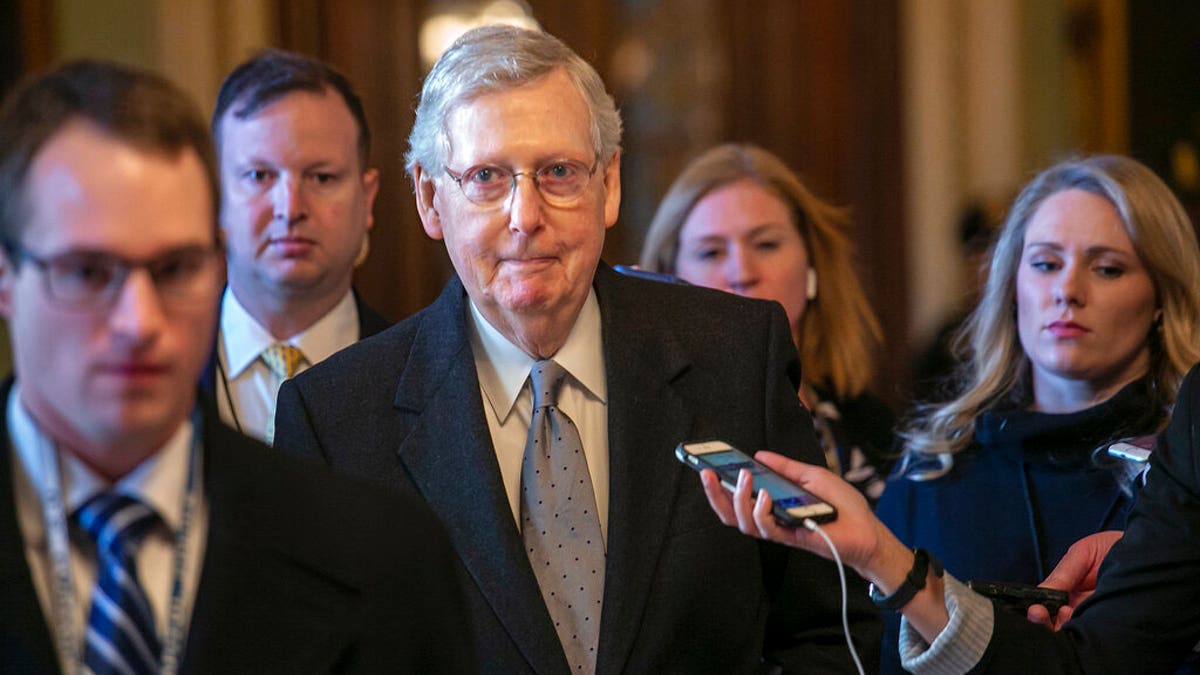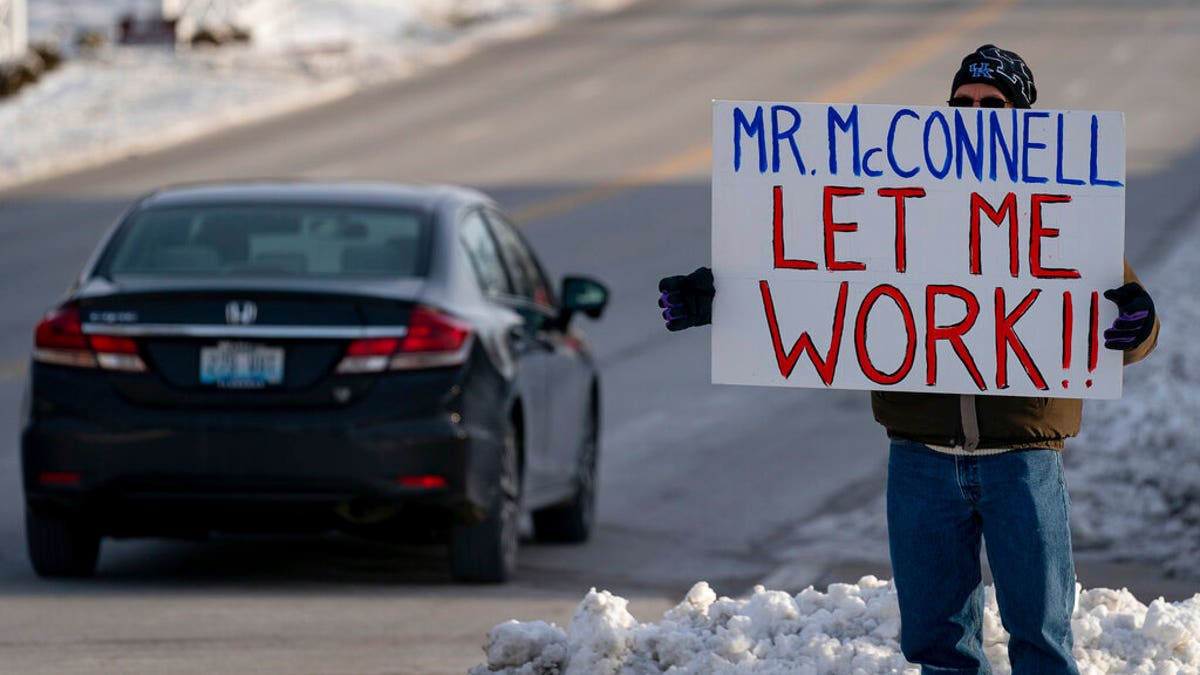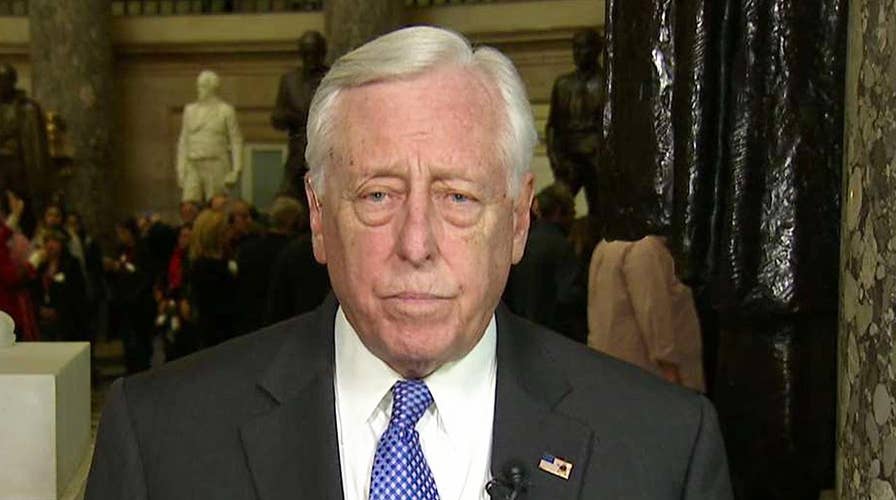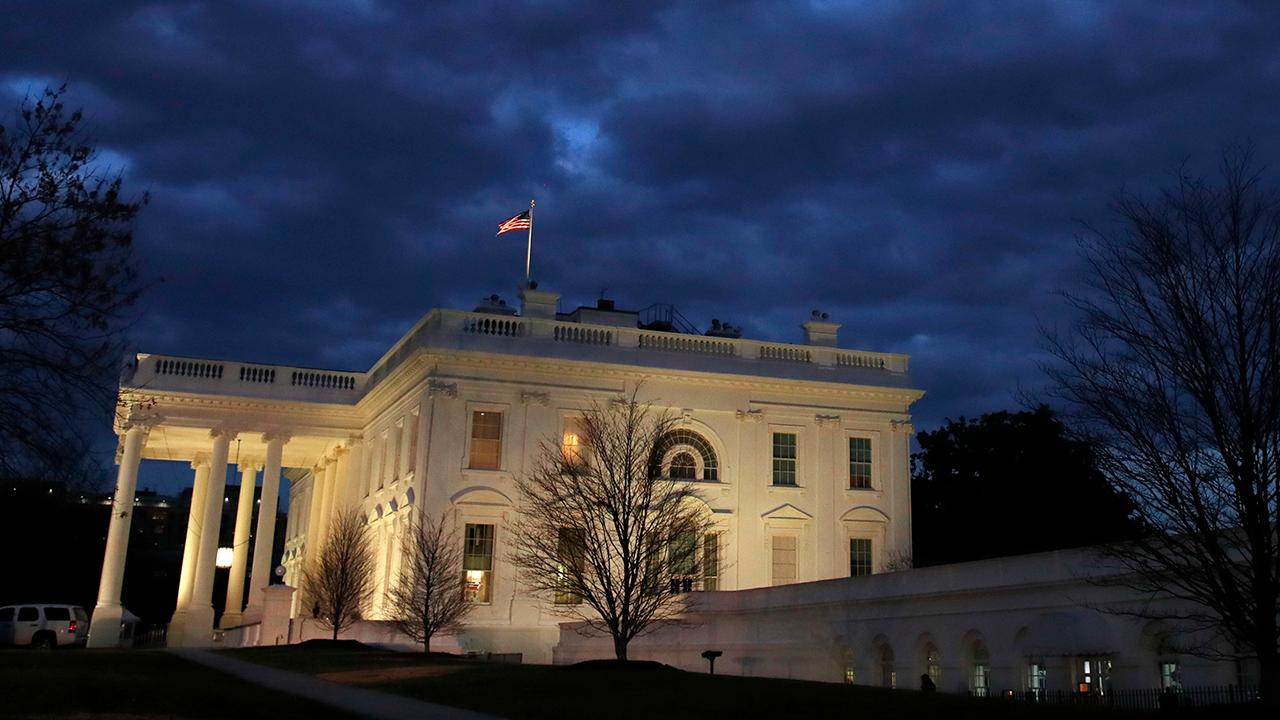Rep. Hoyer on shutdown: It is a step forward to have votes on funding
House Majority Leader Steny Hoyer said he would have no objections to President Trump delivering a State of the Union address in the House of Representatives, even as House speaker Nancy Pelosi raised concerns.
House Majority Leader Steny Hoyer told Fox News' "Your World with Neil Cavuto" on Tuesday that he would have no objections to President Trump delivering a State of the Union address in the House of Representatives on Jan. 29, despite House speaker Nancy Pelosi's repeated threats that the traditional speech be delayed.
Hoyer, D-Md., also noted that the Senate plans to vote Thursday afternoon on both Republican and Democratic proposals to end the ongoing partial federal government shutdown, now in its 32nd day. Both are cloture votes, meaning they both need 60 yeas to pass.
"It's certainly a step forward to have votes, and it's my understanding ... that one of the bills that we sent over, which reopens the government until Feb. 8, will be put on the floor," Hoyer said, referring to the Democrats' proposed bill, which does not include any funding for Trump's proposed border wall. "I'm sure every Democrat will vote for that bill."
The GOP bill tracks Trump's proposal on Saturday, in which he offered Democrats a three-year extension of protections for 700,000 Deferred Action for Childhood Arrivals (DACA) recipients, in exchange for the $5.7 billion he has been seeking for a barrier along the nation's southern border with Mexico.
TRUMP CHALLENGES PELOSI: WHY NOT DESTROY EXISTING BORDER WALLS IF THEY'RE INEFFECTIVE, 'IMMORAL'?
The White House's proposed deal would also extend protections by three years for 300,000 recipients of the Temporary Protected Status (TPS) program -- which protects immigrants from designated countries with conditions that prevent nationals from returning safely.
But Hoyer, the No. 2 House Democrat, said Senate Republicans can't realistically count on even one Democrat supporting that legislation, meaning it would not come close to the 60-vote threshold required for passage. Republicans have a narrow 53-47 majority in the Senate.
"I don't think he's gonna peel off any Democrats," Hoyer said, adding that the shutdown is "dangerous" amid reports that unprecedented numbers of federal airport security screeners are calling out sick. "They think the government ought to be reopened, then there ought to be a negotation."
Hoyer's comments came as Fox News reported that the White House is still planning to move ahead with next week’s scheduled State of the Union address, even as the details remain up in the air after Pelosi strongly urged the president to delay the speech or submit it in writing amid the government shutdown fight.
Fox News has learned that the White House sent a letter to the House Sergeant at Arms asking to schedule a walk-through for next week’s planned address. This comes after a previously scheduled walk-through last week was canceled at Pelosi’s request.

TSA worker Amelia Williams is given a bottle of milk at a food bank for government workers affected by the shutdown, Tuesday, Jan. 22, 2019, in the Brooklyn borough of New York. (AP Photo/Mark Lennihan)
According to multiple sources, it remains unclear whether the address scheduled for Jan. 29 will, in fact, go forward, or where it would be.
The White House is even planning for the possibility of a speech outside of Washington.
Pelosi has cited security threats to the event, given that key federal agencies are unfunded, but a senior Homeland Security official told Fox News that the agency is ready and well-prepared for the event. Republicans have accused Pelosi of playing politics with the address.
UNCERTAINTY SURROUNDS STATE OF THE UNION: TRUMP COULD DELIVER ADDRESS IN SENATE
"It's certainly a step forward to have votes."
Asked by host Neil Cavuto whether Trump can legally request to deliver the State of the Union in the House over Pelosi's objection, Hoyer indicated that he could not. Although Pelosi has not formally disinvited Trump from giving the speech, she has suggested a speech would not be a good idea and should be delivered only in writing.
"Within his right -- now that's a technical term, and the answer to that is no," Hoyer responded. "The president comes here at the invitation of the Congress, and particularly the House, to address the Congress of the United States."
Article II, Section 3 of the U.S. Constitution also grants the president the ability “on extraordinary occasions” to convene either or both chambers of Congress. But that provision hasn't been utilized since 1947 and 1948, when President Harry Truman explored this option twice, and "convening" does not necessarily mean Trump would be allowed to speak.

Senate Majority Leader Mitch McConnell, R-Ky., leaves the chamber after speaking about his plan to move a 1,300-page spending measure, which includes $5.7 billion to fund President Donald Trump's proposed wall along the U.S.-Mexico border, the sticking point in the standoff between Trump and Democrats that has led to a partial government shutdown, at the Capitol in Washington, Tuesday, Jan. 22, 2019. (AP Photo/J. Scott Applewhite)
And when Truman made use of Article II, Section 3 to “convene” Congress, he did so when Congress was out of session. Both Democrats and Republicans have vowed to keep Congress in session until the shutdown is resolved.
Otherwise, for the speech in the House, both chambers of Congress must approve a resolution to use the House chamber and to have both bodies meet in a Joint Session of Congress. This has not happened yet. Should the Senate move to host the president instead, a resolution would still be needed.
But Hoyer, in an apparent break with Pelosi, seemingly had no problems with allowing Trump to speak.
"Sure," Hoyer responded, when asked if he'd be open to Trump speaking in person in the House for the State of the Union. Asked if Pelosi would agree, he added, "I don't know what the discussions have been."
And in another split with Pelosi, Hoyer again demurred when asked if walls are indeed an "immorality."
"Physical barriers are a part of the solution," Hoyer said. "Look, if it's protecting people it's moral, if it's imprisoning people, it may well be immoral."
On Thursday afternoon, the Senate will vote on the president’s compromise plan to end the government shutdown and fund a border wall in exchange for various immigration-related concessions, followed by a vote on a Democratic proposal.
The Democratic plan would re-open the government through Feb. 8, without providing wall funding.
On Monday, Senate Majority Leader Mitch McConnell, R-Ky. argued that Trump's plan is the only realistic way to end the ongoing partial federal government shutdown that is now in its 32nd day. The GOP Senate bill, which tracks Trump's proposal, also includes supplemental funding for disaster recovery.
“The opportunity to end all of this is staring us in the face," McConnell said. "That’s why we will vote on this legislation on the Senate floor this week. All that needs to happen is Democrats agree it is time to put the country ahead of politics, take ‘yes’ for an answer, and vote to put this standoff behind us."

Furloughed EPA worker Jeff Herrema holds a sign outside the offices of U.S. Senator Mitch McConnell, in Park Hills, Ky., Tuesday, Jan 22, 2019. (AP Photo/Bryan Woolston)
McConnell added: “To be clear, the proposal outlined by the President that we’ll consider here in the Senate is the only proposal currently before us that can be signed by the President and immediately reopen the government."
But Hoyer, speaking to Cavuto, said that Trump "created those problems" with DACA by attempting to rescind it. "Now he says I'll solve them for you. That's not negotiation. ...It is a stupid thing to have this president, uh, done."
The GOP bill includes funding to allow Customs and Border Patrol to make "substantial investment in enhanced surveillance technologies, funding for the recruitment and training of 750 new Border Patrol agents… and $5.7 billion for the construction of a physical barrier along the highest-priority areas of the southern border," McConnell said.
In his remarks, McConnell also pointed to Democrats who have publicly disputed House speaker Nancy Pelosi's contention that a border wall would be an "immorality."
“Is their plan truly to throw federal workers, DACA recipients, Customs and Border Patrol, and indeed all Americans under the bus just to extend this run of political theater? So they can look like champions of the so-called ‘Resistance’?" McConnell asked, referring to Democratic leaders.
“That’s not exactly surprising, considering that just a few weeks ago, the Speaker went way out on a limb and declared that physical border security is on its face, quote, ‘an immorality,'" he continued. "But not every Democrat seems to see it that way. And how could they? One Democrat from the state of Washington admitted, quote, ‘the wall is not in itself a bad idea… it’s been done.’ Another from Illinois asserted, quote, ‘If we have a partial wall, if we have fencing, if we have technology used to keep our border safe, all of that is fine.’ And one of the Speaker’s fellow members of the California delegation said, quote, ‘We will support border security… all of its elements including fences.’"
"You can't have a compromise when one side declares, 'This is what we want, and this is what you want,'" Senate Minority Leader Chuck Schumer, D-N.Y., said in his own remarks.
On Sunday, House Homeland Security Committee Chairman Bennie Thompson, D-Miss., broke with some of his fellow congressional Democrats by acknowledging in an interview with ABC News' "This Week" that he "would not rule out a wall in certain instances," although he cautioned that the White House needed a better "plan" than simply using a wall as a "talking point."
Hoyer also appeared to side with Thompson's position last Wednesday on Fox News' "Special Report with Bret Baier," arguing that border walls "obviously" work in some areas and rejecting suggestions that barriers should be removed where they already exist. Hoyer also said walls are not necessarily a question of morality.
And earlier this month, in an interview with CNN, Democratic California Rep. Juan Vargas acknowledged that those physical defenses were effective and enhanced security for local residents.
"I mean, you go to the border and you see long lines of people waiting to come in ... So we do have a problem of having huge wait lines to come in,” Vargas told anchor Don Lemon. “You know, there is fencing already there, to be honest with you. There are places where we already have fencing where it made sense for some security."
Fox News' Chad Pergram, Alex Pappas, John Roberts, and Neil Cavuto contributed to this report.







